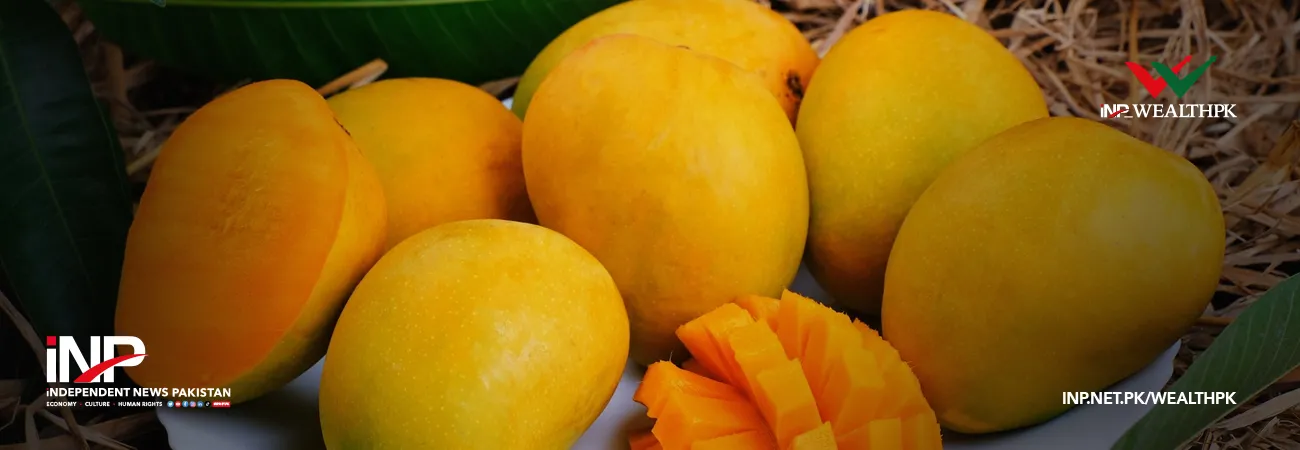INP-WealthPk
Fozia Azam
In an effort to address the wastage of mango produce, Pakistan needs to make significant strides towards the establishment of cold storage facilities at its borderareas, as inadequate post-harvest management causes massive yield loss every year. These facilities will help improve the storage and transportation of mangoes, ultimately bolstering the country's mango exports. In a recent meeting, the Senate’s Standing Committee on Commerce, which was held to discuss barter trade mechanism with Afghanistan, Iran and Russia, Senate Deputy Chairman Mirza Muhammad Afridi stressed that establishment of cold storages at the border areas was necessary to increase mango exports. He noted with concern that that last year, 54% of Pakistan’s mangoes yield was wasted due to lack of cold storages. He directed the Department of Plant Protection (DPP) to take measures to resolve this problem. Each year, Pakistan produces a massive quantity of mangoes, a significant contributor to the agriculture sector and the national economy. However, a significant portion of this yield ends up being wasted due to inadequate storage and transportation facilities.
The adoption of cold storage facilities at the border areas is expected to open up significant opportunities for Pakistani mango exporters. Access to international markets will enhance the country's reputation as a reliable supplier of high-quality mangoes. Moreover, this move will help Pakistan tap into the growing global demand for mangoes, particularly in countries with shorter supply windows due to their own seasonal limitations. The establishment of border cold storage facilities for mango exports will not only have economic benefits, but also positive environmental effects. By reducing wastage, Pakistan will save valuable resources, including water, energy, and other inputs, which are utilised during the production and cultivation of mangoes. This reduction in wastage aligns with the nation's commitment to sustainable agricultural practices and conservation of resources. By investing in post-harvest management infrastructure and implementing better storage and transportation practices, Pakistan is poised to improve the quality of its exported mangoes, access new markets, and maximise economic opportunities for mango growers. This will not only benefit the local economy, but also contribute to Pakistan's image as a dependable producer and exporter of high-quality agricultural produce.
Experts believe that by recognising the urgent need for proper post-harvest management, the government should plan to establish cold storage facilities at various entry points and border crossings. These state-of-the-art, temperature-controlled storage units will enable the storage of large quantities of mangoes, ensuring their freshness and reducing spoilage. The establishment of cold storage facilities will extend the mango export time, improve preservation of fruit quality during transportation, and help the country access international markets with higher quality mango produce. Furthermore, reduced wastage will lead to better economic gains for mango farmers. To support the placement of cold storage facilities, the government also needs to focus on the development of transportation infrastructure to ensure smooth and efficient movement of mangoes from farmlands to the storage units. This includes improving road networks and streamlining logistical processes to minimise delays and spoilage during transit. The government is encouraging public-private partnerships to accelerate the establishment of cold storage facilities.The private sector will bring in expertise and investment to complement government efforts. This collaboration will not only hasten the implementation process, but also result in a sustainable and efficient solution for better post-harvest management.
Credit: INP-WealthPk












